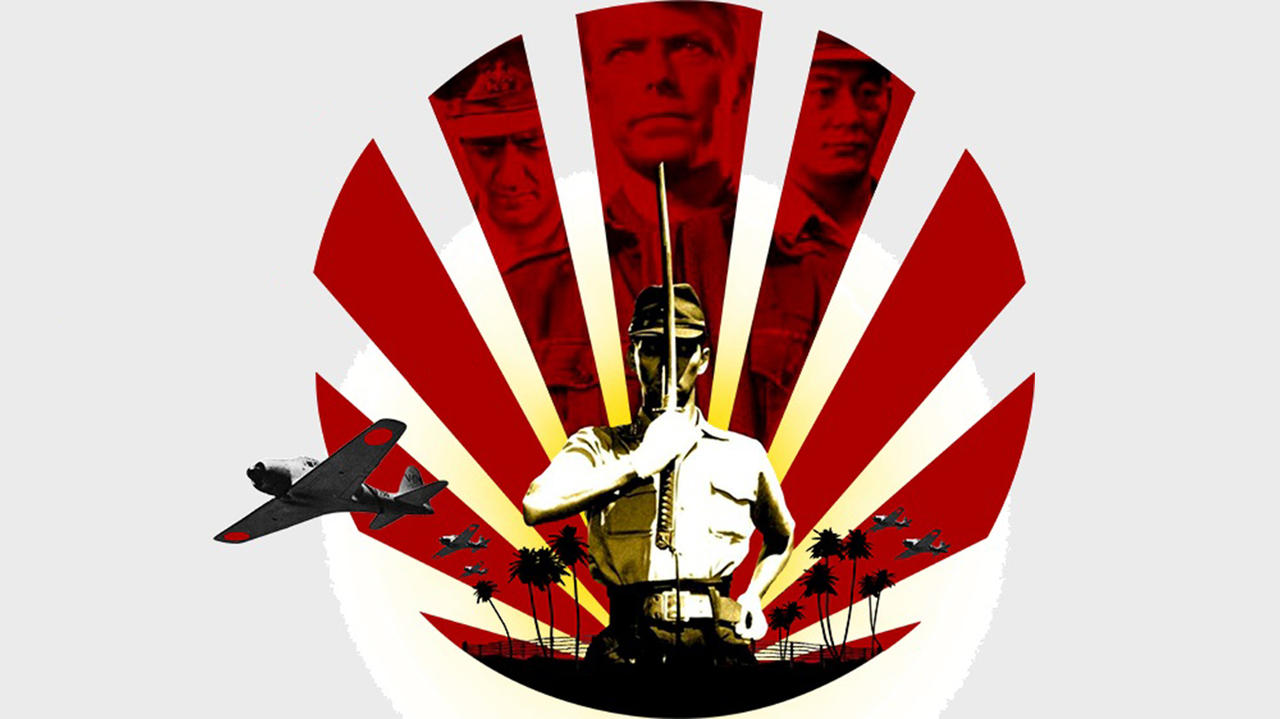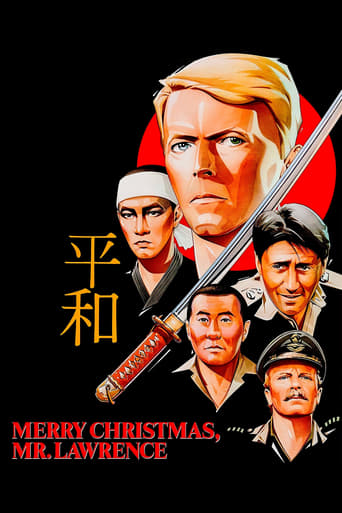

Really Surprised!
... View MoreThis is a tender, generous movie that likes its characters and presents them as real people, full of flaws and strengths.
... View MoreEntertaining from beginning to end, it maintains the spirit of the franchise while establishing it's own seal with a fun cast
... View MoreThe performances transcend the film's tropes, grounding it in characters that feel more complete than this subgenre often produces.
... View MoreIt's 1942 in a Japanese POW camp in Java. Sgt. Hara is a sadistic guard unable to understand the prisoners' willingness to accept shame. British officer Col. John Lawrence is the Japanese speaking leader of the prisoners. Camp commander Capt. Yonoi joins in the court-martial of Maj. Jack Celliers (David Bowie) for leading a native revolt against the Japanese. Celliers is adjudicated a POW and Yonoi takes an interest in him.These are four compelling characters. Tom Conti is solid. Ryuichi Sakamoto is interesting. Takeshi Kitano is absolutely brilliant. David Bowie delivers a mercurial performance. I want the plot to be bigger and more intense. It's also a bit long and meanders in the second half. I do love the final scenes with Hara and Lawrence.
... View MoreAfter watched this film, I need to be alone (though I watched it alone) and clear my thoughts for a while, before I could write any words. Under a particular wartime surrounding, although flames of war has retreated as the backdrop, the predestinate individuals never get the chance to affranchise their innermost love, only leads a tragic story between a Japanese commander and a British slave. This might not be the greatest films ever made, but I cannot deny the emotional resonance it has impacted on me. Two superstars of the rock era at that time from west and orient respectively, David Bowie and Ryuichi Sakamoto's personal charisma works as the pillar of the film, their mutual feelings are constructed with an authentic and credible procedure, so that the whole film is way above just an unrequited love story.The background of Bowie's character with his relationship with his younger brother in their childhood is deftly portrayed too, which renders audiences another prospect which contrasts the Japanese prison camp setting. And his redemption to his brother was fulfilled eventually, the branch line is as appealing as the forbidden love.The titular Mr. Lawrence is the main witness of the whole incident, "mad on mass", is the deep-rooted bad habit of Japanese people which Mr. Lawrence yelled out loud in the film, director Nagisa was so valiant to make a film which explicitly exposes his own race's weakness, also to my surprise his disciple Takeshi Kitano delivers a vivid performance as a Japanese aidedecamp before his luxuriant career as the most famous Japanese director of our generation. FORBIDDEN COLOURS, the recurring theme song of the film composed by Ryuichi himself (I have the single version of the song which performed by David Sylvian with an additional lyric) is an everlasting melody one could ever forget once has watched the film. I will definitely re-watch the film, cannot help putting it on my guilty pleasure list and will explore other works from Nagisa Oshima, maybe his most notorious film THE REALM OF THE SENSES (1976), could someone tell me am I ready?
... View MoreThere's not really much of a plot to this WWII POW-themed prison movie, but that doesn't stop it from being wholly boring. From the start, the film features a fair amount of interesting (and memorable) scenes, a cast of fairly interesting characters, and a fair amount of rough brutality. For the latter, it can be frustratingly difficult understanding why certain characters are so mean-spirited. But it's even more frustratingly difficult accepting any character as purely good or purely evil; they're all evenly developed with depth and humanity that expresses both the harsh malice of war and the camaraderie of peace. This can make the movie rather convoluted and off-putting, but it is fitting in its own right; the film doesn't favor one culture over another, even though the two conflict constantly (and ultimately, the differences between honorable Japanese etiquette and honorable English manners stand out as a prominent theme throughout this film).The film is well-filmed with plenty of interesting photography, unique settings and locations, interesting color and lighting schemes, and a quality realistic-looking production value. Performances (including the talents of Tom Conti, David Bowie, Ryuichi Sakamoto, and Takeshi Kitano) are strong. Ruichi Sakamoto also performs the music score, which is quite interesting.If you enjoyed "Bridge on the River Kwai" or "The Great Escape" and don't mind seeing a similar movie with no big action scenes, this movie may satisfy you.
... View MoreI have not read the novel, though I may very well do so. This is the first film by Ôshima that I watch, but I intend to try to find other of his works. I understand that this is the first he did in English, and it doesn't show or in any way detract from it. This does not feel like there was ever a communication problem between the crew on this. It's nice how they speak Japanese when that is appropriate, and those of us who do not understand that get subtitles. That is exactly how it should be, in my opinion. I had not seen Bowie act before, and I have to admit, he left me positively surprised. Every role is well-cast. This is engaging and interesting, and it's always nice to see such an excellent movie that deals with something so different to what we usually see in features. The cinematography and editing are expertly done. For being over 25 years old, this does not feel dated, and the subject remains relevant, and this continues to be a poignant viewing experience. There is disturbing and unsettling content in this, as well as some violence. I recommend this to anyone mature enough for it. 8/10
... View More